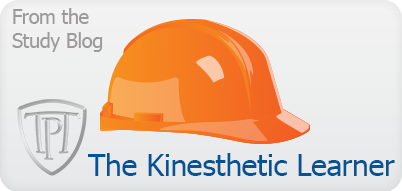
Would you rather ask for directions than study a map? Do you hum along when listening to music? When you read a novel, do you enjoy reading mysteries and thrillers with lots of conversation? Do you often find yourself chatting to the person next to you, when waiting in line at the movies? When preparing for a test do you like to work in study groups and voice the important points out loud? Are you better with names than with faces?
Do we hear a yes? If so, then now you know that you’re an auditory learner! Your ears and your sense of hearing are your most effective learning aids. Now that we’ve identified your learning style, let’s discuss some methods that will help you boost your learning potential.
Attend lectures.
You are the type who will benefit most from listening to a lecture as you will be able to bring to mind your teacher’s voice when trying to recall the material. So do make it a point to be there when the teacher discusses an important topic, because you’re better off hearing the information rather than reading it later.
Use voice recording.
Voice recording will help you hold on to material because you’re not naturally inclined to taking notes and referring to them later. So do what comes to you naturally and record the lectures for later use.
Find a seat in an area where you can hear well.
You may not need to pay immediate attention to what’s being written on the board, but you do need to be able to hear what is being said. It’ll help you more than reading and copying things down.
Engage in group discussions.
Discussions with other people will get you in the habit of sharing your learning with peers. It will do you a ton of good when you listen to the points your peers make and reinforce them with your own input. That’s when your brain registers the most content. Don’t underestimate the advantages of saying something out loud—when you construct a thought knowing that someone else also needs to hear it and process it, you’ll be better able to put together a coherent idea.
Read aloud.
For those times when you do read something, do it aloud. Hearing your voice as you read will make it easier for your brain to absorb the material you’re reading.
Assign code words.
When you’re trying to memorize facts and details, try verbalizing them. Or better yet use words to create associations that you can recall easily in the future. By repeating these code words in times of need, you will be surprised by your ability to trigger your memory at your convenience.
Background music.
Underscore (pun absolutely intended) your study sessions with some music playing in the background. It doesn’t matter what music, although the popular genre for serious studying remains the classical compositions of the likes of Beethoven, Mozart and Tchaikovsky. You may attempt these methods to see how you fare, but for the real deal, you’ll need to contact us and discover the treasure trove of tips and strategies we have in store for you. Click here and sign up for a free session.
If that doesn’t do it for you, you’re probably a kinesthetic learner or a visual learner. We’ve got you covered too.



This article highlights two very important and useful methods of learning, and i speak from experience. the assigning of code words and engaging in group discussions really helps with new ideas and remembering stuff.
Also, i remember when i was young i used to record long answers and then i’d try to memorise them!s
Interesting article! From my experience, I find it much easier to put on an audiobook on my music player than actually read the book.